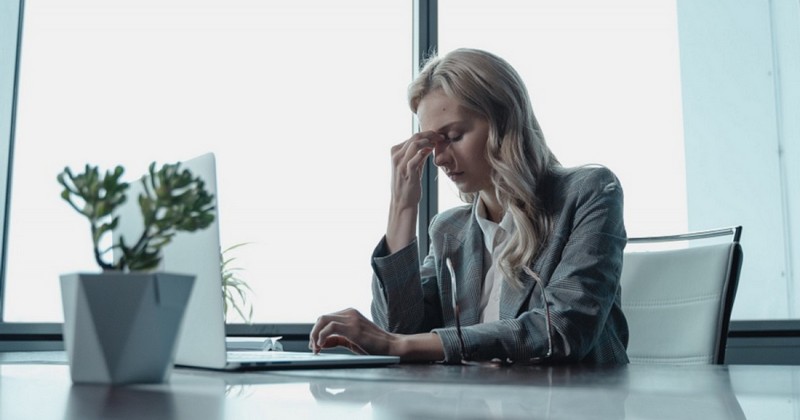Post-Christmas anxiety: what is it and how to deal with it?

A review of the characteristics of post-Christmas anxiety, and tips on how to deal with it.
We tend to associate Christmas with a special period that is somehow disconnected from the rhythm and dynamics we experience during the rest of the year. Days that, even for many people who are not religious, mean reconciliation, love, and in general, that which predominates in calm contexts.
With this in mind, it is not surprising that it is relatively common to suffer from anxiety problems during these days and weeks. anxiety problems during the days and weeks following the Christmas holidays.. In this article we will explore its characteristics, its possible causes, and what to do about this problem.
What is post-Christmas anxiety?
Post-Christmas anxiety consists of an excess of anxiety facilitated by the transition from the Christmas holiday period to the return to routine.. This rapid change from one situation to another is difficult to manage for some people, who have failed to "tune up" their coping skills and prepare for a more accelerated and competitive pace of life.
In any case, post-Christmas anxiety is not in itself a psychological disorder. is not in itself a psychopathological disturbanceand therefore does not appear in diagnostic manuals. However, it can be a form of discomfort serious enough to require professional help.
How to recognize this problem?
Post-Christmas anxiety is expressed through the typical symptoms of anxiety when it reaches excessively high levels for the individual (bearing in mind that a certain degree of anxiety is not problematic and is in fact a natural phenomenon in any healthy human being). The most common are the following:
- Trouble sleeping
- Difficulty concentrating on tasks
- Irritability and a tendency to feel frustration.
- Greater muscle tension than normal
- Headaches
- Tendency to focus the mind on pessimistic predictions about what will happen
- Feeling of constant tiredness
- Tendency to feel dizzy
- General malaise and muscle discomfort
- Increased Heart rate
- Performance of repetitive movements to cope with stress (nail biting, hair pulling, etc.).
These symptoms come and go, occurring relatively frequently depending on the situations to which the person is exposed and the memories and thoughts that cross his or her mind.
Causes of this phenomenon
These are some of the factors that lead to the appearance of post-Christmas anxiety.
1. Return to the demands of work
After Christmas already there is no contagious tendency to be understanding and conciliatory with others.This is especially noticeable in the work environment.
2. Feelings of guilt about expenses
After Christmas, the psychological effects of the marketing campaigns carried out at this time of the year disappear and the objective reality of the money spent on purchases and the objective reality of the money spent on shopping and eating out arrives.. Becoming aware of this can be a hard emotional blow.
3. Problems to make ends meet
To the previous element must be added the problems that many people experience in getting through the month with the money available in the bank account, i.e., the practical efforts to save, practical efforts to save.
4. Discomfort due to changes in eating habits
After a few days of prolonged abundant meals, discomfort may arise from the physical to the emotional (poor nutrition favors inflammatory processes, and these, the problems associated with anxiety and depression). In addition, psychologically it can also be it can be difficult to go from family meals that last several hours to a situation in which you have half an hour to prepare something during the workday..
What to do?
Post-Christmas anxiety does not usually escalate into psychological disorders, and in most cases fades on its own in a matter of a few weeks. However, it is sometimes sometimes it is useful to have psychotherapeutic support in order to adapt quickly to the new situation and develop the necessary emotional management skills. On the other hand, if the discomfort lasts too long, it may indicate that there is a type of psychological disturbance that does need to be addressed in the psychologist's office before it becomes chronic.
Do you want professional psychological assistance?
If you are looking for psychotherapy services to overcome or better cope with some kind of emotional discomfort that affects you in your daily life, please contact us. At Psicomaster we attend people of all ages and we offer individual therapy as well as therapy for families and couples. Sessions can be face-to-face at our center located in Madrid, or online via video call.
Bibliographical references:
- Davison GC (2008). Abnormal Psychology. Toronto: Veronica Visentin.
- Peiró, J.M. (1993). Desencadenantes del Estrés Laboral. Madrid: Eudema.
- Persson, P. B. & Zakrisson, A. (2016): Stress. Acta Physiologica, 216(2): pp.149 - 152.
- Segerstrom, S.C.; Miller, G.E. (2017). Psychological Stress and the Human Immune System: A Meta-Analytic Study of 30 Years of Inquiry. Psychological Bulletin. 130(4): pp. 601 - 630.
- Sylvers, P.; Lilienfeld, S.O.; LaPrairie, J.L. (2011). Differences between trait fear and trait anxiety: implications for psychopathology. Clinical Psychology Review. 31(1): pp. 122 - 137.
(Updated at Apr 13 / 2024)